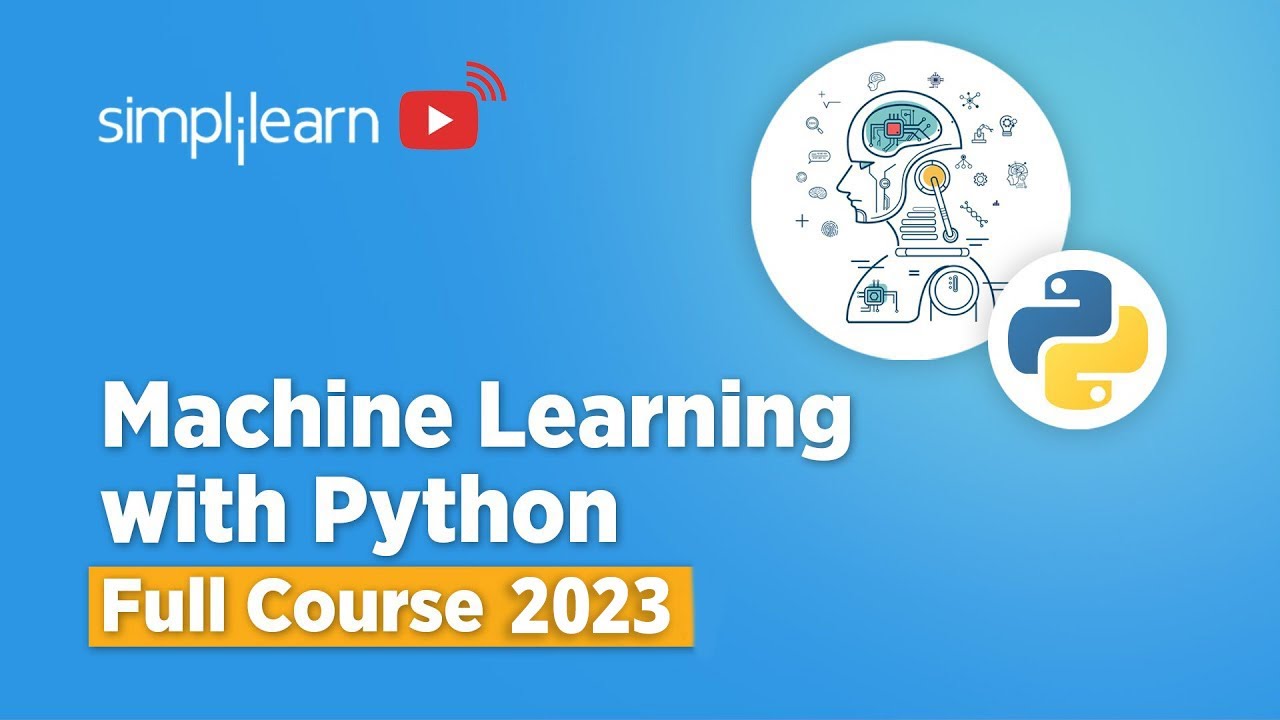Can I learn machine learning with Python?
Can I learn machine learning with Python?

Learning Machine Learning with Python! A fantastic combination!
Absolutely, you can! Python has emerged as a popular choice for Machine Learning (ML) due to its simplicity, flexibility, and extensive libraries. You'll be amazed at how quickly you can get started.
Here are some compelling reasons why:
Easy to Learn: Python is an accessible language, even for those without prior programming experience. Its syntax is straightforward, making it an excellent choice for beginners. Wide Adoption: Python has a massive community and is widely used in various fields, including scientific computing, data analysis, and web development. This means you'll have plenty of resources to draw from. Numerous Libraries: Python has numerous libraries that simplify the process of building ML models. Some notable ones include: NumPy: For efficient numerical computations. SciPy: For scientific computing and signal processing. Pandas: For data manipulation and analysis. scikit-learn: A comprehensive library for ML tasks, including classification, regression, clustering, and more. Keras: Python has the popular Keras deep learning framework, which provides an easy-to-use interface for building neural networks. TensorFlow: TensorFlow is another prominent open-source ML framework that's written in Python. It's widely used for research and production. Data Preprocessing: Python's Pandas library makes it simple to handle and preprocess datasets, a crucial step in any ML project.To get started with Machine Learning using Python:
Install the necessary libraries: pip install numpy scipy pandas scikit-learn keras tensorflow Learn the basics of Python: Familiarize yourself with Python syntax, data structures, and control flows. Start with simple projects: Begin with simple ML tasks like regression, classification, or clustering using scikit-learn or Keras. Work on real-world problems: Apply your skills to practical problems, such as image recognition, natural language processing, or recommender systems. Read books and articles: Explore online resources, including tutorials, blogs, and research papers to deepen your understanding.With Python's ease of use, extensive libraries, and vast community, you'll be well on your way to becoming a machine learning expert!
So, what are you waiting for? Dive into the world of Machine Learning with Python!
Python machine learning course online
I'd be happy to provide an overview of a comprehensive python machine learning course online! Here's a detailed outline:
Course Title: "Python Machine Learning Essentials"
Course Description:
This self-paced, interactive course is designed for beginners and intermediate learners who want to master the fundamentals of machine learning using Python. By the end of this course, you'll have gained hands-on experience with popular machine learning libraries like Scikit-learn and TensorFlow, and be able to apply your knowledge to real-world problems.
Course Outline:
Module 1: Introduction to Machine Learning
What is Machine Learning? Types of Machine Learning (Supervised, Unsupervised, Reinforcement) Basic Math Concepts (Linear Algebra, Probability)Module 2: Python Basics
Introduction to Python Data Types (Numbers, Strings, Lists, Dictionaries) Control Structures (Conditional Statements, Loops) Functions and ModulesModule 3: Supervised Learning
Linear Regression Logistic Regression Decision Trees Random Forest Support Vector Machines (SVMs)Module 4: Unsupervised Learning
K-Means Clustering Hierarchical Clustering Principal Component Analysis (PCA) t-Distributed Stochastic Neighbor Embedding (t-SNE)Module 5: Deep Learning with TensorFlow
Introduction to TensorFlow Building a Simple Neural Network Convolutional Neural Networks (CNNs) Recurrent Neural Networks (RNNs) Long Short-Term Memory (LSTM) NetworksModule 6: Model Evaluation and Selection
Metrics for Evaluating Models (Accuracy, Precision, Recall, F1 Score) Cross-Validation Hyperparameter TuningModule 7: Working with Datasets
Importing Data from CSV, JSON, and Excel Files Data Preprocessing (Handling Missing Values, Normalization) Feature Engineering (Selecting Relevant Features)Module 8: Advanced Topics in Machine Learning
Natural Language Processing (NLP) Basics Image Classification using CNNs Time Series AnalysisCourse Resources:
Online lectures and video tutorials Interactive coding exercises and projects Downloadable datasets for practice Discussion forum for Q&A with instructorsPrerequisites: Basic understanding of Python programming and statistics.
Target Audience: Data Scientists, Machine Learning Engineers, Researchers, and anyone interested in building machine learning models using Python.
Course Duration: 8 weeks (approx. 2-3 hours per week)
Certificate: Upon completing the course, you'll receive a certificate of completion from the online education platform.
This comprehensive online course will take you on an exciting journey to master machine learning with Python!





























